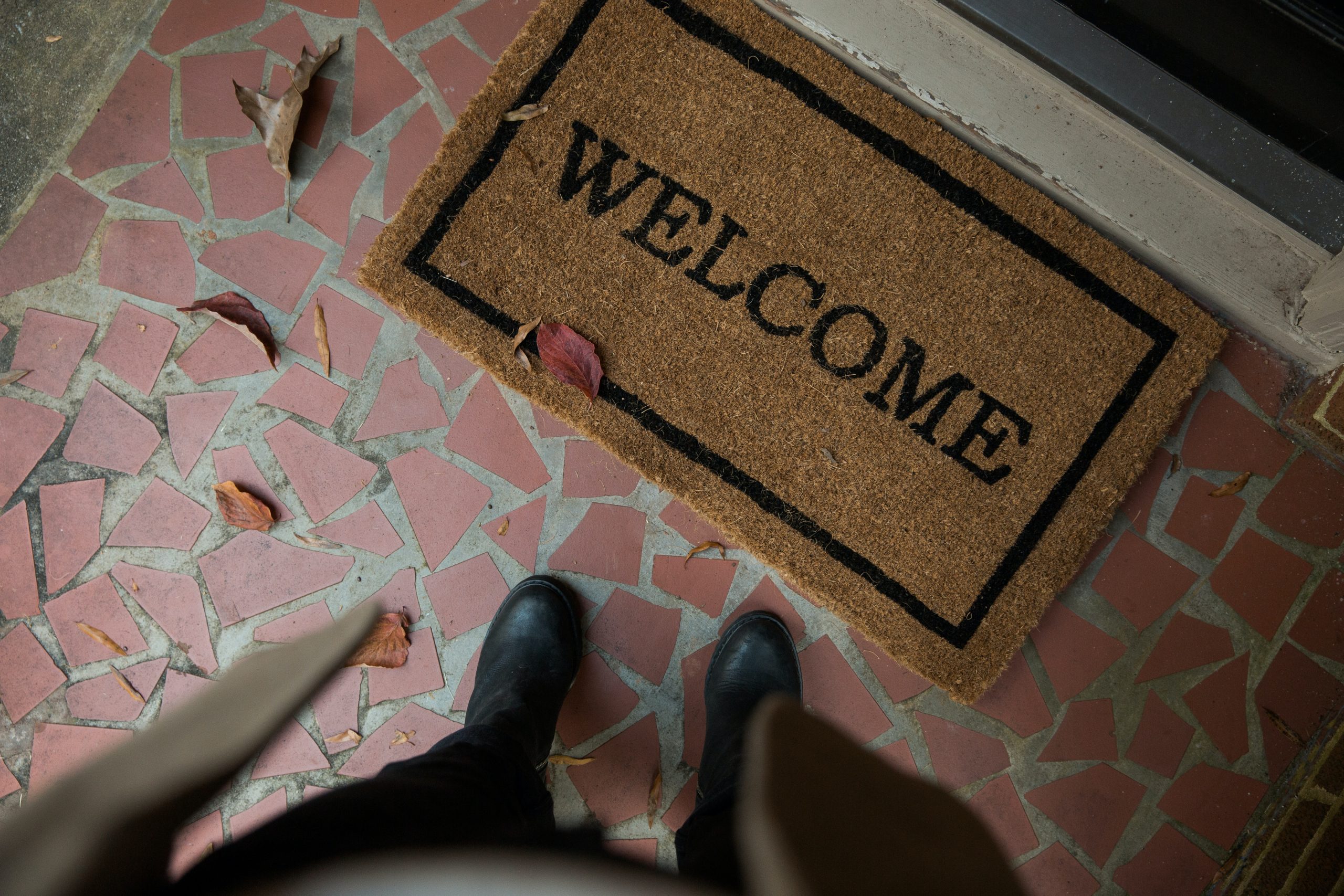
BS”D
Volume 37, No. 45
23 Elul 5783
September 9, 2023
Sponsored by the Greengart and Lerman families in memory of their father Zvi ben Ben Zion a”h (Harry Greengart)
Appropriately for the Parashah that is always read on the Shabbat preceding Rosh Hashanah and the Ten Days of Repentance, Teshuvah / repentance is a major focus of this week’s portion. According to some commentaries, the commandment to repent is itself found in Parashat Nitzavim, which we read this week.
Many people find Teshuvah to be an uncomfortable subject, notes R’ Reuven Sasson shlita (Rosh Yeshiva of Yeshivat Hesder Ramat Ha’sharon)–as if talking about repentance brands us as bad people. This feeling undoubtedly comes from the fact that most people think about Teshuvah only when confronting a sin they have committed. Often, people think about Teshuvah during the High Holiday season because they have to and avoid it at all other times. However, R’ Sasson writes, this reflects a superficial understanding of Teshuvah.
R’ Avraham Yitzchak Hakohen Kook z”l (1865-1935; first Ashkenazic Chief Rabbi of Eretz Yisrael) writes: “Teshuvah does not come to embitter a person’s life, but to make it more pleasant.” R’ Sasson explains: Of course, Teshuvah includes facing up to one’s sins. The word “Chet” / “sin” means “to stray” off of the proper path. And the literal meaning of “Teshuvah” is not “repentance,” but rather “return.” Doing Teshuvah means returning to mankind’s normal, healthy state, from which Adam strayed when he sinned and from which we strayed further. Teshuvah is not creating a new reality; it is returning to what should be our normal condition. That, in turn, should bring a person happiness, not bitterness. (Be’or Panecha: Hashiveni V’ashuvah p.15)
********
“Hashem will not be willing to forgive him, for then Hashem’s anger and jealousy will smoke against that man, and the entire imprecation written in this Book will come down upon him, and Hashem will erase his name from under the heavens.” (29:19)
R’ Simcha Zissel Ziv z”l (1824-1898; the Alter of Kelm) writes that this verse demonstrates how great is the reward of those who observe the Torah. How so?
The Alter explains: If someone wants to offer an investment that has the potential for a very substantial loss, he must build in the possibility of a substantially larger gain before a savvy investor will take a chance on it. Especially if he is offering the investment to people he cares about, he will make sure it carries a substantial potential return on investment.
Hashem calls us His treasured people (Devarim 14:2), His first born son (Shmot 4:22) whom He loves forever (Yirmiyah 31:3). Even so, He offered us a covenant based on a Torah that carries the awful penalties described in the verse above, which, in turn, alludes to the Tochachah / curses in last week’s Parashah. How great must be the reward–the potential return on investment–for Him to offer this deal to His beloved children! (Kitvei Ha’Sabba Mi’Kelm: Yamim Nora’im 3)
********
“For this commandment that I command you today–it is not hidden from you and it is not distant. It is not in heaven, [for you] to say, ‘Who can ascend to the heaven for us and take it for us, so that we can listen to it and perform it?’ Nor is it across the sea, [for you] to say, ‘Who can cross to the other side of the sea for us and take it for us, so that we can listen to it and perform it?’” (30:11-13)
R’ Moshe ben Nachman z”l (Ramban; 1194-1270; Spain and Eretz Yisrael) writes that the “commandment” referred to here is the Mitzvah of Teshuvah / repentance.
R’ Aryeh Leib Shapiro shlita (Yerushalayim) explains: We are taught that a person’s sins are not a personal matter and nothing more, as one might think. Rather, any sin that a Jew commits leaves a negative imprint on the spiritual worlds above and throughout our physical world. Thus, for example, the Gemara (Kiddushin 40b) states: “A person should always picture that the world is half meritorious and half guilty, such that his next action–good or bad–will tilt the scales.”
Given the impact that our sins have, one might think that doing Teshuvah should require ascending to the heavens and crossing the sea, writes R’ Shapiro. How else can one repair the damage that he has caused? Nevertheless, say our verses, Hashem, in His kindness, enables us to repent and to repair our damage without the need to make those journeys. (Keter Meluchah p.151)
********
“You were revealed in Your cloud of glory to Your holy people to speak with them. From the heavens You made them hear Your voice and revealed Yourself to them in thick clouds of purity. Moreover, the entire universe shuddered before You and the creatures of creation trembled before You during Your revelation, our King, on Mount Sinai to teach Your people Torah and commandments.” (From the Rosh Hashanah Mussaf)
R’ Avraham Shimon Halevi Ish Horowitz z”l Hy”d (1876-1943; Mashgiach in Yeshivat Chachmei Lublin in Poland) was once “talking in learning” with some students when one of them asked a question that R’ Horowitz felt was the product of superficial analysis and was motivated by a desire to show off, not by a sincere desire to understand the material. R’ Horowitz dismissed the question and quoted the above lines from the Rosh Hashanah prayers, adding, “If those who learn Torah would only remember these words–how the world trembled when Hashem revealed Himself to give the Torah–they would study Torah differently and not ask such questions!” (Naharei Esh: Likuttei Dibburim 221)
********
Shabbat
This coming Shabbat will be Rosh Hashanah. Is it a good sign for us when Rosh Hashanah falls on Shabbat, or the opposite? asks R’ Yaakov Yokev Ettlinger z”l (1798-1871; rabbi of Altona, Germany; author of the Talmud commentary Aruch La’ner). On the one hand, he writes, the first Bet Hamikdash was destroyed in a year which began on Shabbat. On the other hand, the sin of the Golden Calf was forgiven, the Mishkan was built, and Bnei Yisrael entered Eretz Yisrael in years whose Rosh Hashanah fell on Shabbat.
R’ Ettlinger answers using a parable: A king became angry with one of his noblemen, and a judge was appointed to decide the nobleman’s fate. It seemed that a horrible punishment awaited the defendant. The nobleman tried desperately to find colleagues who would speak up in his defense, but they were all afraid to intervene. The nobleman’s relative, however, told him not to worry, for he would speak in the nobleman’s defense, and he was confident that his word would carry weight. Indeed, he was correct, and the nobleman was let off with only a slap on the wrist.
Soon afterward, the king became angry with a different noblemen–a nasty individual who regularly terrorized those around him–and the same judge was appointed to decide his fate. Like the first nobleman, this one too was unsuccessful in finding colleagues who would intervene. But in his case, too, a relative told him not to worry, for he would speak in the nobleman’s defense.
The day of the trial came, and the nobleman’s relative rose to speak. The judge interrupted him, however, asking him why he had a big bruise on his cheek. The relative demurred, but others in the courtroom explained that the nobleman had slapped his relative cruelly in a fit of anger. Hearing that, the judge refused to hear the relative’s defense, and the nobleman was given a stiff sentence.
R’ Ettlinger explains the parable: All year long, we sin, and when Rosh Hashanah comes, we pray that the sounds of the Shofar will confuse the prosecuting angel and “speak” in our defense. That may work when Rosh Hashanah falls on a weekday. However, when Rosh Hashanah falls on Shabbat, we do not blow the Shofar, out of a concern that someone will carry a Shofar out of doors without an Eruv and thereby transgress the Sabbath. What, then, speaks in our defense when Rosh Hashanah falls on Shabbat?
R’ Ettlinger answers: Like the relative in the parable, Shabbat itself, which our Sages refer to as our “spouse,” can take the place of the Shofar and “speak” in our defense. If we have honored Shabbat all year long, then Shabbat can present a convincing defense on our behalf, and we will be blessed with a successful year. But, if we have not shown Shabbat the proper honor all year long, how can it convincingly defend us? To the contrary, by refraining from blowing the Shofar, ostensibly to honor Shabbat, we appear, G-d forbid, to be hypocrites!
R’ Ettlinger concludes: Therefore, in a year such as this, when Rosh Hashanah falls on Shabbat, let us make extra efforts to repent–for what is hidden from us we do not know, and what is concealed from us we will not inquire about. Who knows if the year’s end will be good or bad! [R’ Ettlinger wrote these words in 5632 (1871/72), his last year. As we conclude a year of studying about Shabbat, may we merit to repent and have Shabbat speak in our defense.] (Minchat Ani: Ha’azinu)


